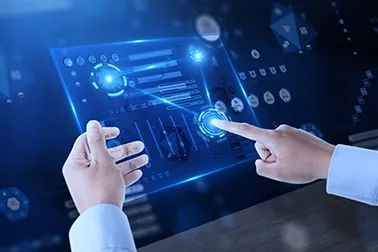Zoran Radosavljevic2024-07-29 16:26:04Euractiv

Under these requirements, all products sold in the EU, except food and medicines, are to have a unique identifier that will have a machine-readable mechanism that tracks the product through its lifespan and advises consumers on best practices for recycling.
The idea is that improving information exchange on this data will encourage recycling and foster trust between consumers and businesses in the era of digitalisation.
An Ecodesign Forum, expected in late 2024 or early 2025, will follow ESPR’s coming into force, bringing together stakeholders across member states to create a working plan for implementation by March 2025.
“The DPP is a way to understand product composition, function, and where it is going next so that whoever is receiving it knows what to do with it,” said Rik Bhattacharya, head of advisory board and DPP lead at Protokol, a digital solutions provider network.
Margaux Le Gallou, who works on DPP as programme manager for ECO Standard, an environmental advocacy NGO, said there would be a difficult transition period but “the general feeling of the initiative is that it is worth it”.
Manufacturers can get information from the business or consumers that buy their products to create “a more accurate supply of repair products, improving product lifespan,” she added.
The first round of products required to comply with DPP includes batteries. By 2027, every battery in the EU marketplace will require a DPP data carrier with an embedded web link to a DPP database.
Bhattacharya said the data carrier “can be a QR code, barcode, and so on […] there is no standard that rules them all”.
Businesses will also store the DPP data, in the hope of avoiding overflowing data centers that will be difficult to maintain as adoption grows.
A heavy lift
Although the deadlines for compliance may seem distant, the preparation and IT infrastructure needed meet the Commission’s timeline is huge.
The DPP must streamline key datasets for consumers, manufacturers, and waste disposal services to use, and communicate with non-EU manufacturers to ensure all products being imported to the EU are aligned with the DPP.
There is also the large task of aligning member states with the new infrastructure, which will test the DPP’s functioning at scale with its massive data requirements.
“This will be a costly exercise for the entire supply chain, and we need to be sure that the data sets will create value for the economy and sustainability,” said Cecilia Bonefeld-Dahl, director general at Digital Europe, a trade association.
The concern is interoperability between all parts of the supply chain. A seamless journey for a product “from cradle to grave” takes a large amount of information logging. Some businesses, especially those importing to the EU, are hesitant to hand over product data, said ECO Standard’s Le Gallou.
Businesses must ensure their DPP service provider is compatible with their IT systems and budget. For this to be affordable for businesses, current data storing systems need to be reflected in the new DPP architecture.
“We want to make sure that the DPP aligns with what the industry is already doing. If we don’t, we are creating costs for companies having to redesign their IT systems and slowing down the ability for those solutions to be taken up in the market,” Bonefeld-Dahl said.
The consumer’s perspective
The DPP is expected to promote conscious consumerism and recycling by advising on a product’s disposal or repair.
Although the details on how it is going to work are still being decided, the idea is that a consumer can scan the mechanism, find out if there is a reason for product failure and have access to recycling, repair or recall information.
“The ethos behind [DPP] is facilitating the true circular economy and creating better business models, where one person’s waste is another person’s raw material,” said Bhattacharya.
“More businesses will have reasons to have good buy-back or reward programs using DPP technology as virgin materials will be harder to find and have higher taxes. A lot of companies across the EU will take the lens of rewarding customers with programs like Apple’s Take Back program to boost resource efficiency,” Bhattacharya added.
Declare:The sources of contents are from Internet,Please『 Contact Us 』 immediately if any infringement caused